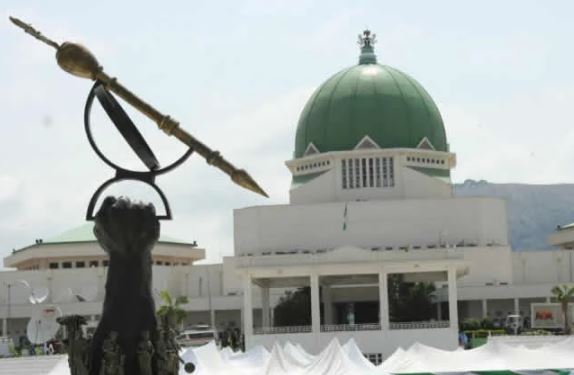Lawmakers Siphoning Money Using Medical Outreach, Agencies
According to a report by The PUNCH, the Independent Corrupt Practices and Other Related Offences Commission has accused senators and members of the House of Representatives of using medical outreach to divert and steal public funds.
Investigations by the commission revealed that most of the federal lawmakers had rechristened their constituency projects as medical outreaches because it was difficult to track the amounts spent on the exercise on account of its fluid nature and the confidentiality of medical records.
The third phase of the ICPC project tracking has monitored various zonal intervention and executive projects valued at over N114.1bn between 2019 and 2020.
The National Assembly had reportedly padded the 2021 budget with over N500bn and also inserted over 1,000 controversial projects in the budget.
The President, Major General Muhammadu Buhari (retd.), had proposed N13.08tn, but upon passage, the federal lawmakers used their legislative powers to increase the budget to N13.6tn, an increment of over N500bn.
In the 2022 budget, the lawmakers reduced the provisions for about 10,733 projects and introduced 6,576 new ones totalling N36.59bn for National Assembly’s projects in the Service-Wide Vote.
Buhari had in 2019 lamented that about N1tn had been appropriated in the last 10 years for the constituency projects of federal lawmakers without any impact.
However, the ICPC in the Constituency and Executive Projects Tracking Initiative: Phase 3 Report, said its investigations discovered that less than 50 per cent of funds for the so-called medical outreaches were expended, describing the exercise as a “cesspool of corruption.”
The commission noted that oftentimes, the projects were not executed, but pictures from previous programmes get inserted in the project files and passed off.
It also said the lawmakers often domiciled their medical outreach projects in institutions located in a different city from where the projects were meant to be executed.
It stated, “Evidently because of pressure occasioned by the CEPTi tracking exercise, some legislators have re-characterised most of their projects to what they termed: ‘medical outreach’.
“This is a brand of soft projects involving the provision of various healthcare interventions ranging from creating awareness on diseases, and providing basic drugs to routine basic surgical interventions, which have suddenly taken the lead in project portfolios without many measurable benefits.
“It is difficult to track because of its soft and fluid nature and the traditional confidentiality of medical records. Analysis shows a sudden uptick in the number of such projects, particularly being sponsored by members of the lower chamber. Investigations have discovered that hardly do 50 per cent of the funds released for such projects get expended in the execution of the projects.”
The anti-graft agency found that contractors for the medical projects were carefully chosen and contracts awarded without compliance with due process.
The ICPC operatives discovered that over 20 projects were domiciled in the National Tuberculosis and Leprosy Centre, Zaria, Kaduna State.
The report said only N309.7m was disbursed to the contractor for 16 of the 20 projects valued at over N1.2bn.
The commission disclosed that in some cases, the contractors were paid the entire contract sums without the required Bill of Quantity, adding that cash was paid to the Chief Executive of the NTLC, Dr Labaran Shehu, who in turn passed it to the lawmakers.
The ICPC stated, “Investigations found that contractors were deliberately and carefully chosen, and contracts awarded to them without any dint of compliance with due process and asked to reroute the monies in cash to the CEO, Dr Labaran Shehu, who in turn would pass the monies to the sponsors.
“In some of these cases, the contractors were paid the entire sums without a BOQ produced. The contracts were never intended to be executed in the first place.
“The CEO would sometimes inform the contractors that the contracts had been executed on their behalf. The contract value of 16 projects is N1,238,863,500, while the amount already disbursed to contractors amounts to N309,715,875. The said CEO and all found culpable have been cited for prosecution as appropriate.”
The ICPC spokesperson, Mrs Azuka Ogugua, said the commission was enforcing the implementation of the projects, adding, “Our operatives are ensuring that the projects are executed to the letter.”
Findings by the anti-agency also indicate that the Small and Medium Scale Enterprises Development Agency is being used as a conduit to siphon public funds running to billions of naira.
It stated, “A new method of corruption being perpetrated in SMEDAN has been discovered. On all projects for the disbursement of grants, SMEDAN pays the funds through some selected microfinance banks ostensibly to disburse the funds to the beneficiaries and keep proper records.
“The microfinance banks take 2.5 per cent of whatever contract sums as disbursement managers, but investigations revealed that this practice is merely a conduit for corruption as the so-called managers neither disburse nor manage anything, but take 2.5 per cent for doing nothing.”
It was gathered that a microfinance bank in Katsina State was selected as the manager for the disbursement of funds to be made in Bayelsa or Nasarawa State.
The commission explained that it discovered that over 58 of such projects running into billions of naira in SMEDAN’s 2020 budget alone.
The agency’s spokesman, Ibrahim Mohammed, could not be reached for comment on Friday as calls to his line indicated that it was unavailable. He had yet to respond to an SMS seeking his comment on the ICPC indictment as of the time of filing this story.



